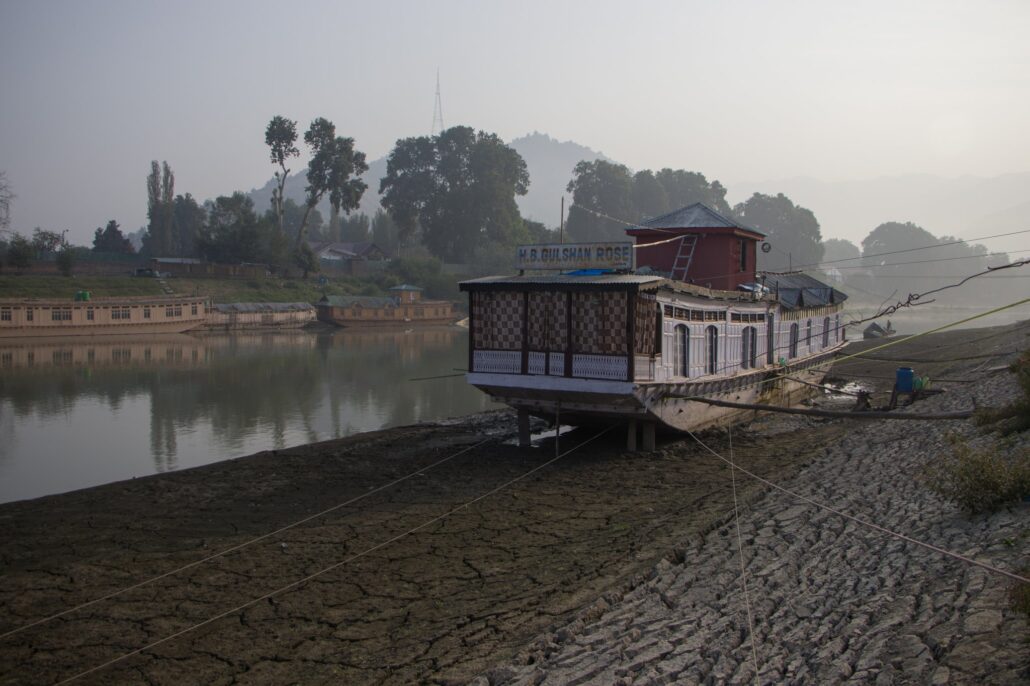
With a prolonged dry spell and a record-breaking heat wave affecting Jammu Kashmir, water levels in the Jhelum river and its tributaries have decreased, causing concern among the population, especially farmers.
The government acknowledges that some areas have been affected but assures that this is a temporary situation that cannot persist for long.
Sanjeev Malhotra, In Charge Chief Engineer of the Jal Shakti department, informed the news agency KNO that the prolonged dry spell has resulted in reduced water flow in the River Jhelum, Doodh Ganga, and other tributaries.
“It is evident that water can only be supplied when it is available. Currently, the absence of rainfall has reduced water flow in rivers and tributaries, which may consequently affect the supply process,” Malhotra stated.
However, he emphasized that there hasn’t been a significant impact thus far and that the prolonged dry spell is a temporary issue that cannot persist for an extended period. The Chief Engineer added that once precipitation occurs, conditions will improve on the ground. He also appealed to people to use water judiciously during this prolonged dry spell.
Meanwhile, Chief Engineer of Irrigation and Flood Control (I&FC), Naresh Kumar, told KNO that the prolonged dry spell has had a 25 percent impact on lift irrigation spots.
“There hasn’t been any major impact thus far, but conditions will improve as soon as the weather improves,” Kumar reassured.
Significantly, the prolonged dry spell has caused a decrease in the water level of the River Jhelum and its tributaries.
Farmers are expressing concerns about the low water levels, fearing a significant impact on their orchards if the weather situation does not improve.
Notably, parts of J&K continue to experience a prolonged dry spell, with hot and dry weather conditions persisting for an extended period. Srinagar, the summer capital of Jammu Kashmir, and other areas in the valley have recorded record-breaking maximum temperatures in September. (KNO)
